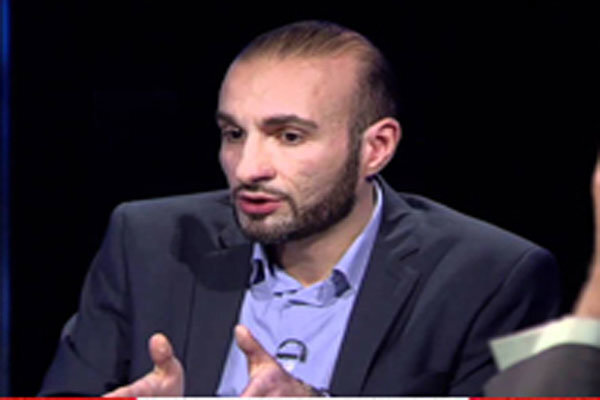By Mohammad Mazhari
TEHRAN - Professor Arshin Adib-Moghaddam, chair of the Centre for Iranian Studies at the London Middle East Institute, says that the shift in American demographic structure is an important opportunity to save democracy in the United States.
"The biggest opportunity for change is rooted in the changing demographic structure of the country," Professor Adib-Moghaddam tells the Tehran Times.
Many political scholars believe that racism and white supremacy can be a big threat to U.S. democracy, while American society is ethnically diverse.
Trump's presidency and his far-right policy were an alarm to U.S. democracy; however, many political pundits say that the change in U.S. population makeup will shift the course in the future.
The mainstream political culture in the United States remains acutely underdeveloped, a rump civil society that is squeezed by unregulated capitalism and a two-party system that has not allowed for real and much-needed reform. "In less than 20 years, one-third of the population in the United States will be Hispanic, moving the country much closer to a ‘Latin’ identity," Adib-Moghaddam notes.
"It is inevitable, that the right-wing narrative which tries to hold on to white supremacist ideas, will be increasingly shattered. It is this inevitable reality that fuels White Supremacist terrorism. It's the desperate, last stand of the "White Man", as I use this term not in racial terms, but as a synonym for a colonial mentality that is being overrun by history," the leading professor states.
Following is the text of the interview:
Q: How do you assess democracy in the U.S. right now? Is it an ethical democracy or just a plutocracy influenced by money and media?
A: All governments of the world are influenced by the media and capital. While this problem may be compounded in the United States, it is certainly not unique to the country. The main threat to democracy in the United States and elsewhere in the world comes from extremist politics, mainly from the right-wing.
This is one of the main arguments of "What is Iran?". Donald Trump represents exactly the politics of this globally networked right-wing. It is based on xenophobia, aggression, an unscientific and irrational worldview and a good dose of stupidity. The new technologies have enabled their intolerant politics on a global scale galvanizing the politics of hatred and aggression in nominal democracies, from South America (e.g., Bolsonaro) to Europe (e.g., Le Pen).
Q: Some scholars say that the American political system needs repair and an alternative version of democracy. What is your analysis?
A: Like many other countries of the world at the time, the United States may have formally adopted democratic governance structures, but the country wasn't a democracy in the progressive sense of the word. Slave ownership was rampant and women were not part of the equation. The politics of racial segregation continued until the civil rights movement in the 1960s.
“His (Trump’s) presidency was the sad apotheosis of a homicidal political movement that is based on vile and, above all uncivilized, human emotions.”The yardstick of democracy is that the will of the people is enacted and that the most vulnerable members of society are protected from the arbitrariness of the majority. Even today, the formally democratic structures in the United States have not established a just society, where democracy is not limited to voting, but acknowledged as a form of good governance that guarantees human security, social emancipation and a relatively egalitarian society that is well informed about the choices that it makes. The mainstream political culture in the United States remains acutely underdeveloped, a rump civil society that is squeezed by unregulated capitalism and a two-party system that has not allowed for real and much-needed reform. The biggest opportunity for change is rooted in the changing demographic structure of the country.
In less than 20 years, one-third of the population in the United States will be Hispanic, moving the country much closer to a "Latin" identity.
It is inevitable that the right-wing narrative which tries to hold on to white supremacist ideas will be increasingly shattered. It is this inevitable reality that fuels White Supremacist terrorism. It's the desperate, last stand of the "White Man", as I use this term not in racial terms but as a synonym for a colonial mentality that is being overrun by history. My book "What is Iran?" looks at the ways this idea merged into Trumpism and how it feeds into global politics in general and demonizing countries such as Iran in particular.
Q: How do you evaluate Trump's presidency? Could he represent a movement beyond the two-party system?
A: Trump is the manifestation of a wider phenomenon that is challenging democratic aspirations all over the world. His presidency was the sad apotheosis of a homicidal political movement that is based on vile and, above all uncivilized, human emotions. The real driver for change in the United States will not be Trump. It will be descendants of the BlackLivesMatter movement and the new generation of Black, Latin and cosmopolitan white U.S. Americans who will question the viability of the political and socio-economic system of their country. This new process of democratization, in a real progressive fashion, will be determined from the bottom-up and not by the political elites.
TAGS


No comments:
Post a Comment